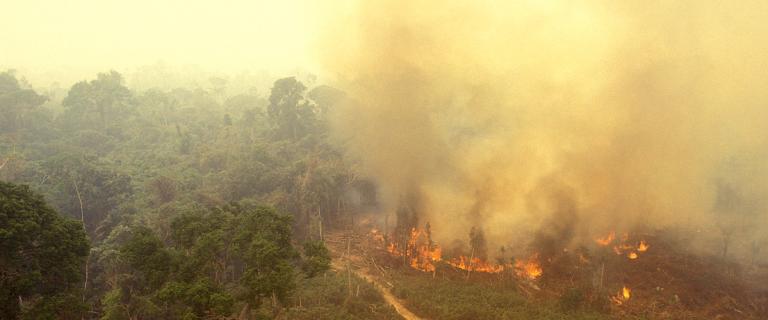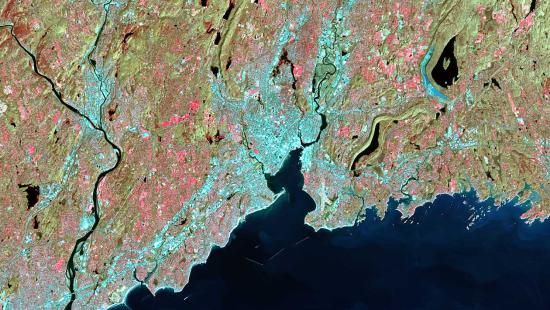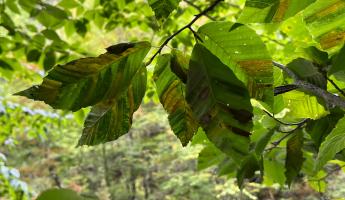

A decrease in tropical forest biomass stemming from changes in climate may lead to increased carbon emissions that could accelerate global warming, according to a new study co-authored by YSE postdoctoral associate Maria del Rosario Uribe and Paulo Brando, associate professor of ecosystem carbon capture.
Tropical ecosystems store over half of the world’s above-ground carbon in their biomass, which includes vines, trunks, and leaves. A decrease in biomass reduces the capacity of these ecosystems to capture and store carbon. The research team said the decrease likely stems from prolonged and intense dry periods in the forests from climate change.
“Wetter regions have much more biomass, or carbon, than drier regions. If wetter tropical areas shrink due to climate change, then you’re likely to lose the massive amount of carbon they store as well,” says Uribe, who led the study that was published in the journal Nature Climate Change.
The research team used maps from satellites to study above-ground biomass in the tropics of South America, Africa, and Asia. To make predictions about the future, researchers leveraged historical data reaching back to 1950 to build empirical statistical and machine learning models. They found a strong relationship between above-ground biomass and spatial climate variability.
Due to the empirical relationship between above-ground biomass and climate, factors such as fire, drought, and interactions with the soil are implicit in the model, the researchers note.
The researchers found that if greenhouse gas emissions from human activity are higher, losses of stored carbon could nearly double by 2100.
Uribe says she is hoping this data will strengthen the case for current climate policy initiatives, such as the Paris Climate Agreement that seek to limit global warming to no higher than 1.5 degrees Celsius compared to pre-industrial levels and preserve tropical forests.
Brando notes that the findings can be looked at as “glass half full or a glass half empty.” The losses due to climate change are not massive but are concentrated in a key specific region of the Southeastern Amazon.
“The tropics hold a considerable amount of carbon, almost 20 years of global human emissions,” Brando says. “We show that tropical ecosystems can resist a lot of climatic change, but these ecosystems’ future will depend on how we protect these areas from deforestation, logging, and human-made fires.”




